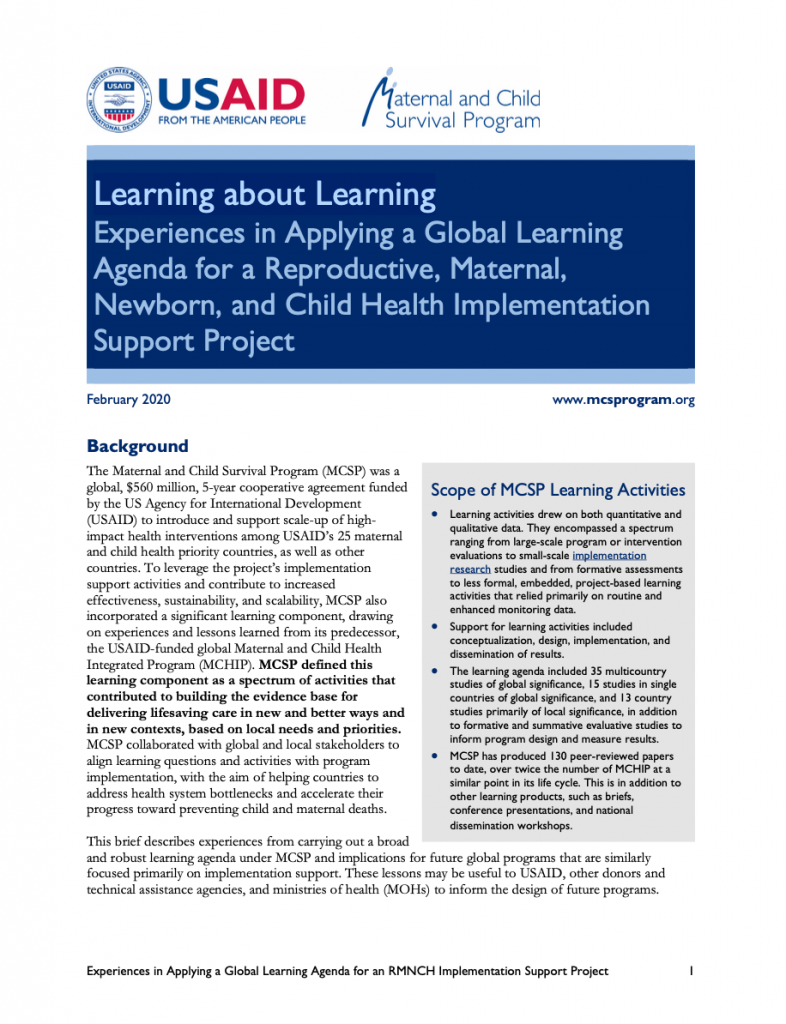
This brief describes experiences from carrying out a broad and robust learning agenda under MCSP and implications for future global programs that are similarly focused primarily on implementation support. These lessons may be useful to USAID, other donors and technical assistance agencies, and ministries of health (MOHs) to inform the design of future programs. […]
Read More…
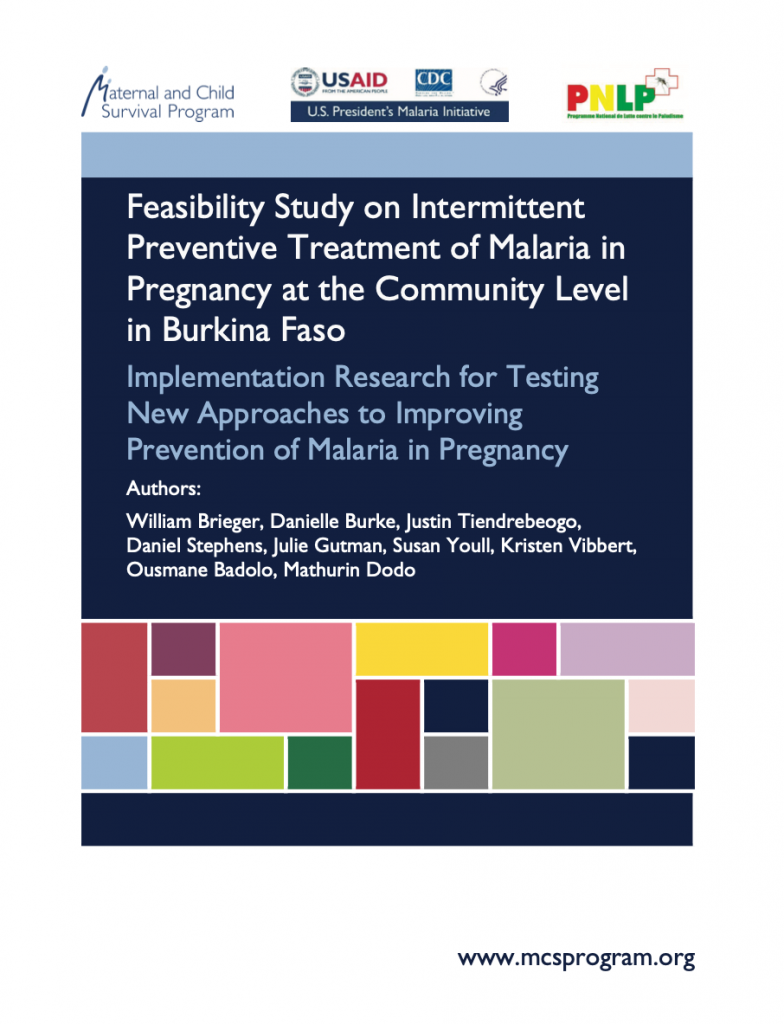
Burkina Faso’s 2016–2020 National Malaria Strategic Plan aims to reduce malaria case incidence using strategies that include the prevention of malaria in pregnant women using intermittent preventive treatment of malaria in pregnancy with sulfadoxine-pyrimethamine (IPTp-SP). The challenge has been achieving the recommended three or more monthly doses starting at week 13 of pregnancy, which was […]
Read More…
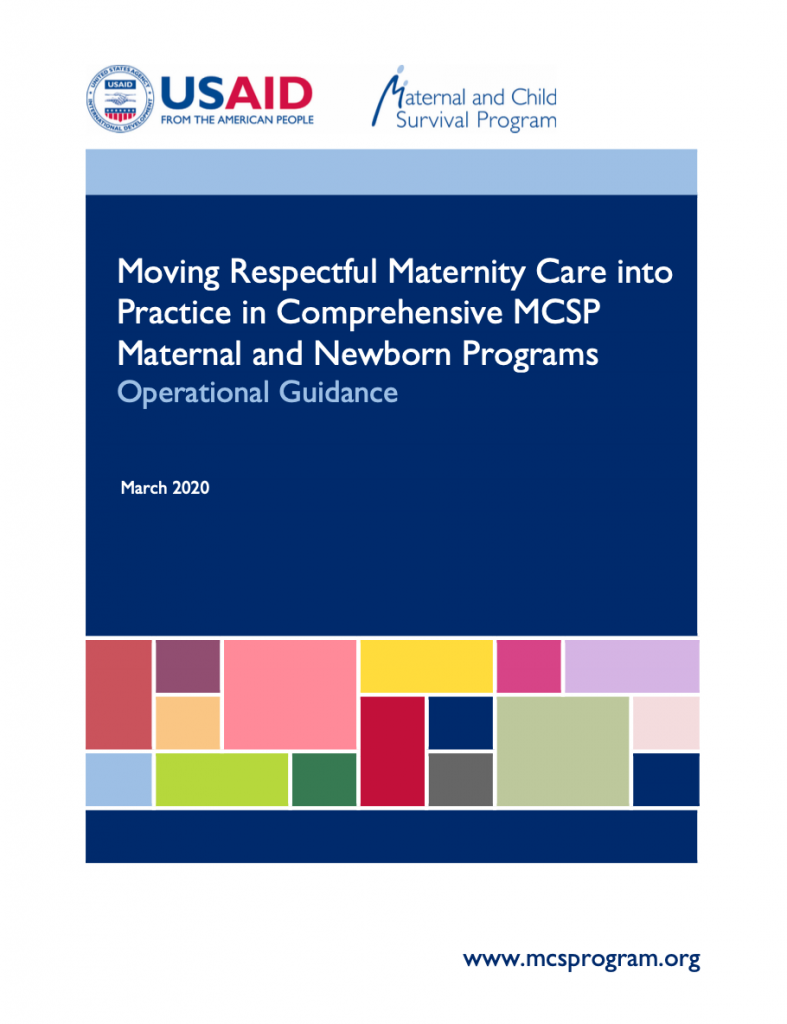
Women’s and families’ experiences of childbirth care in health facilities is fundamental to their overall experience of childbirth and to their decision about where to give birth. Childbirth is an experience with deep personal and cultural significance and women and families want, and have the right to, respectful dignified care during childbirth. Studies from around […]
Read More…
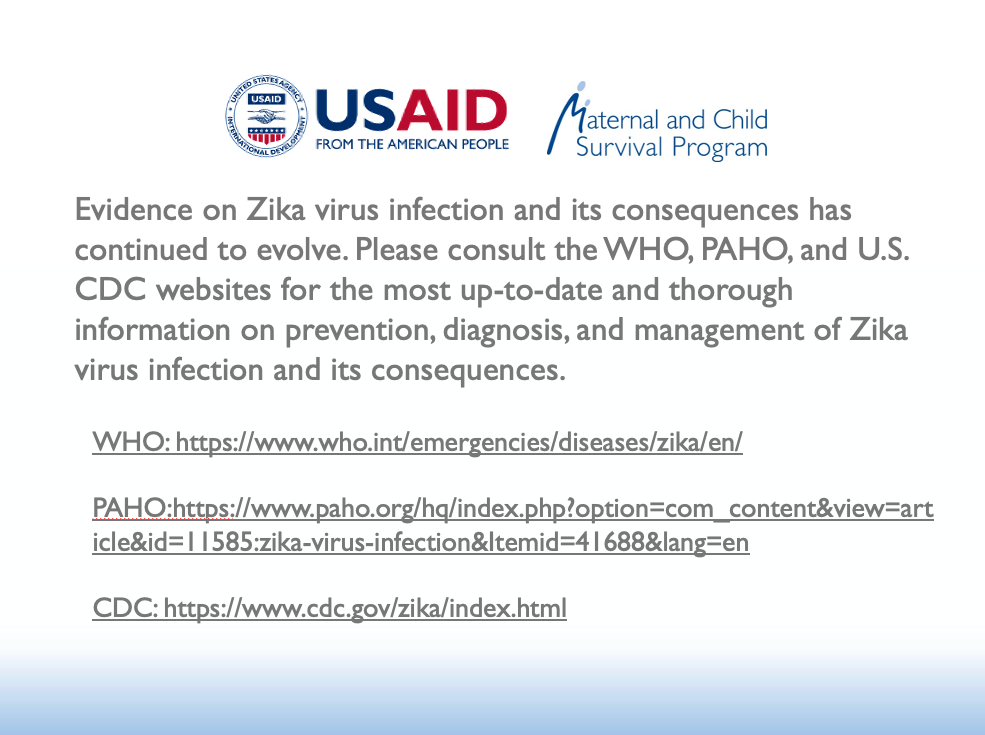
Evidence on Zika virus infection and its consequences has continued to evolve. Please consult the WHO, PAHO, and U.S. CDC websites for the most up-to-date and thorough information on prevention, diagnosis, and management of Zika virus infection and its consequences. […]
Read More…
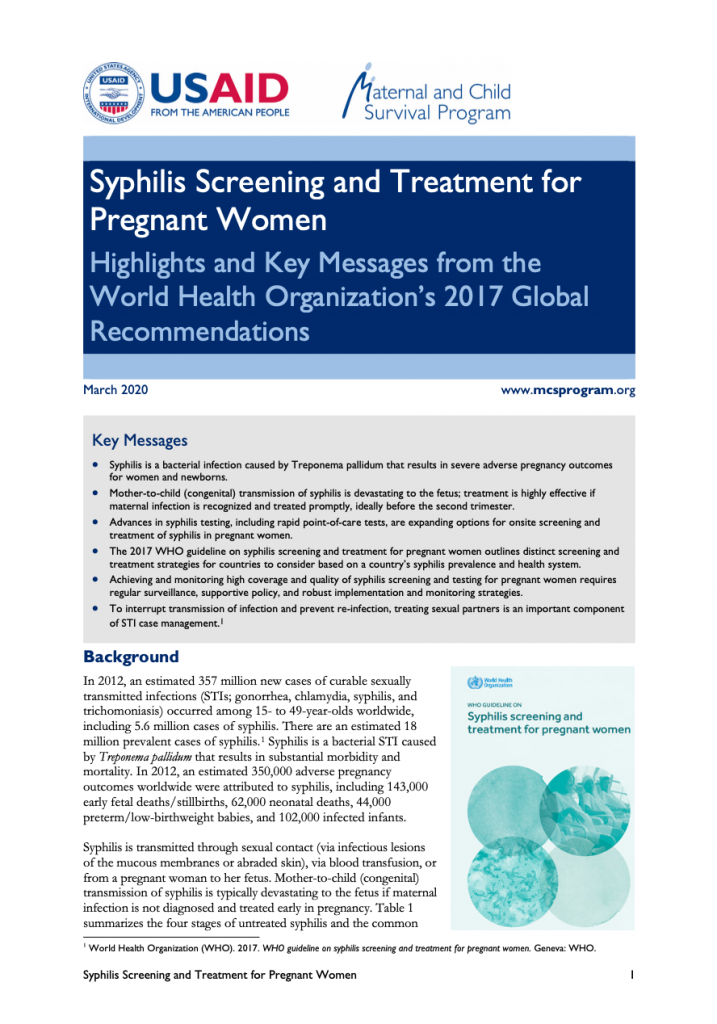
In 2012, an estimated 357 million new cases of curable sexually transmitted infections (STIs; gonorrhea, chlamydia, syphilis, and trichomoniasis) occurred among 15- to 49-year-olds worldwide, including 5.6 million cases of syphilis. There are an estimated 18 million prevalent cases of syphilis.1 Syphilis is a bacterial STI caused by Treponema pallidum that results in substantial morbidity […]
Read More…
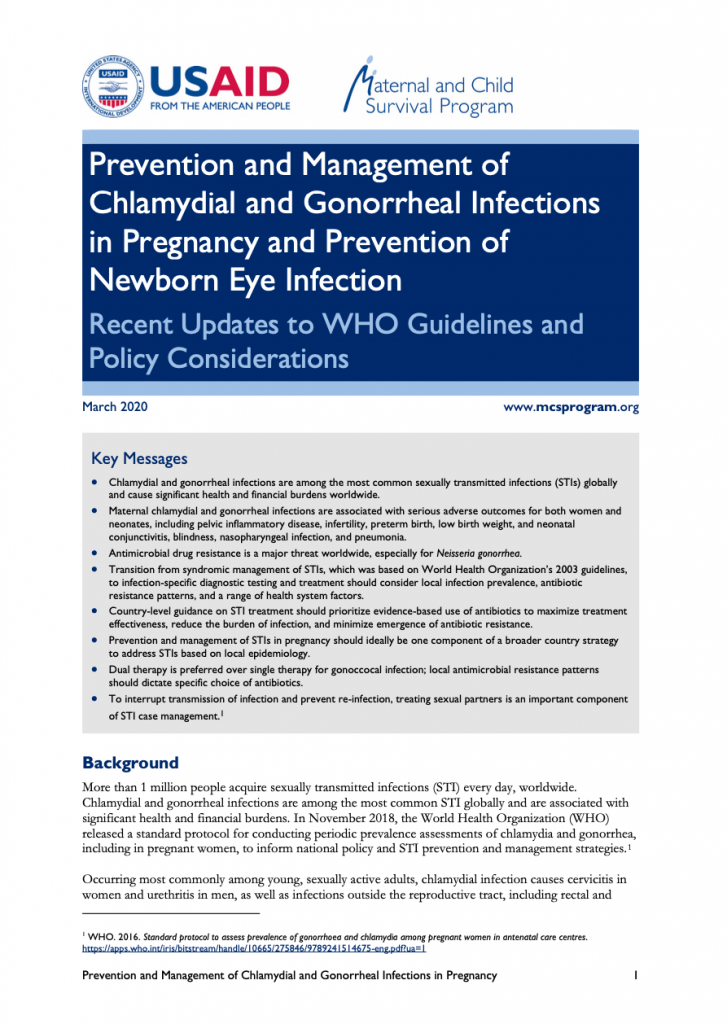
More than 1 million people acquire sexually transmitted infections (STI) every day, worldwide. Chlamydial and gonorrheal infections are among the most common STI globally and are associated with significant health and financial burdens. In November 2018, the World Health Organization (WHO) released a standard protocol for conducting periodic prevalence assessments of chlamydia and gonorrhea, including […]
Read More…
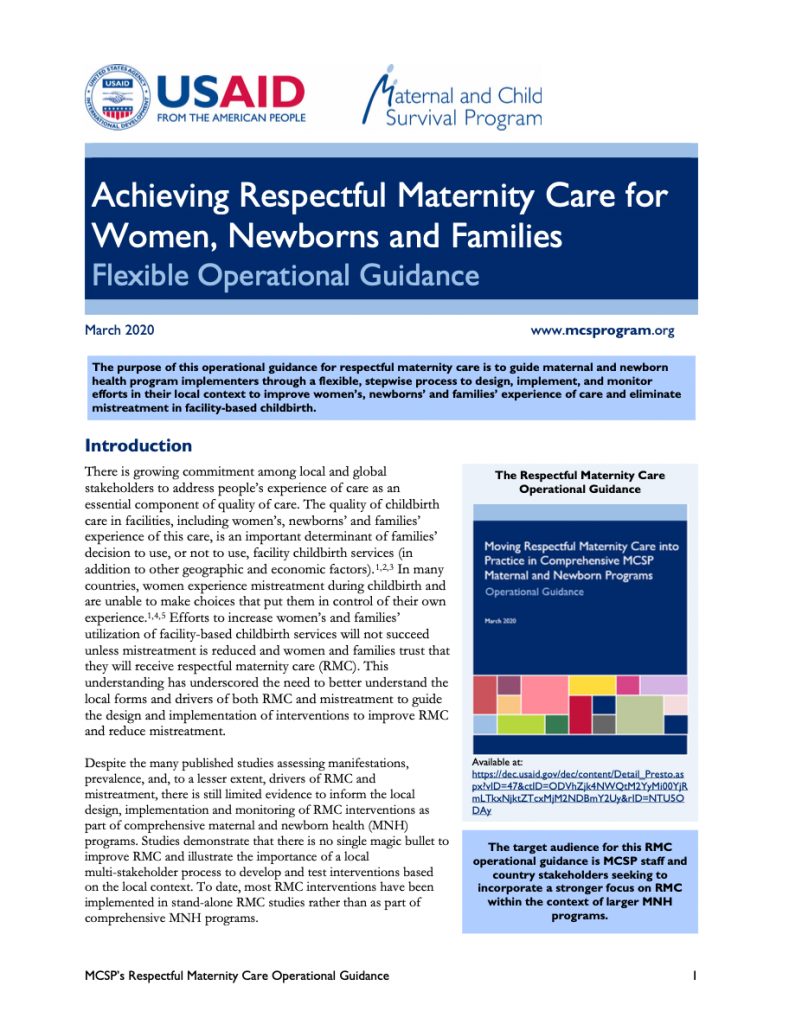
The purpose of this operational guidance for respectful maternity care is to guide maternal and newborn health program implementers through a flexible, stepwise process to design, implement, and monitor efforts in their local context to improve women’s, newborns’ and families’ experience of care and eliminate mistreatment in facility-based childbirth. Also available in French […]
Read More…
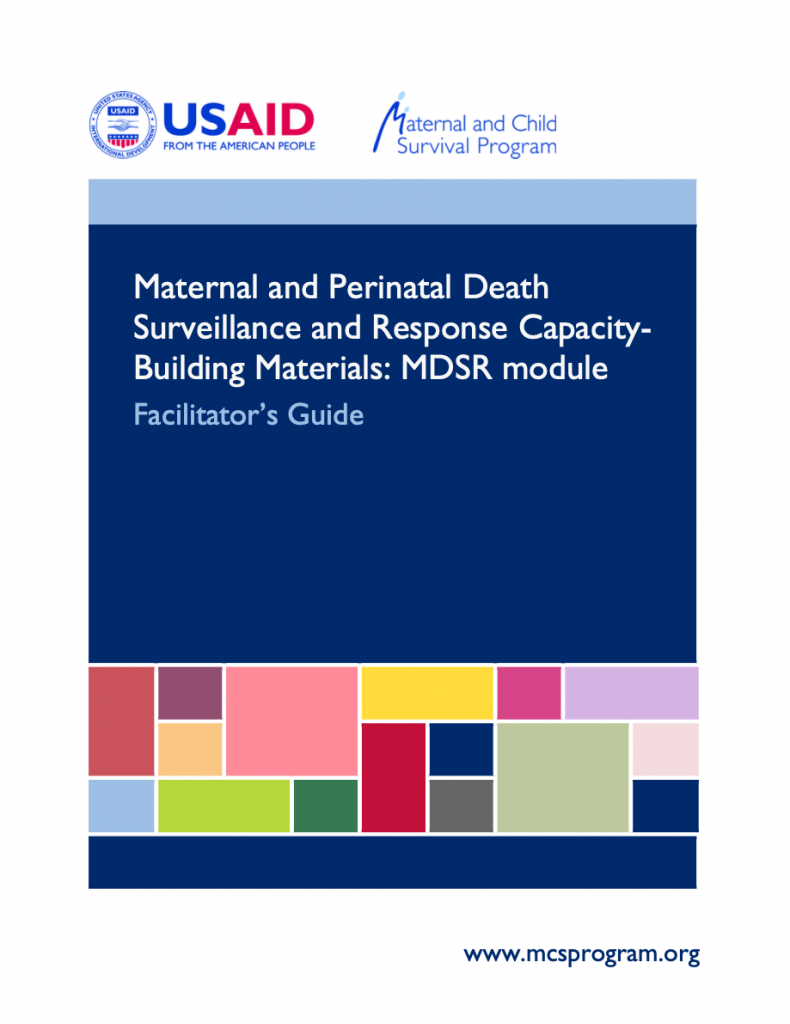
Several recent assessments have demonstrated that maternal and perinatal death surveillance and response (MPDSR) implementation lags behind national policy in many countries and that there are few global or local resources to build manager and health worker skills to implement MPDSR processes in low-resource settings. This module is part of a set of aligned MPDSR […]
Read More…
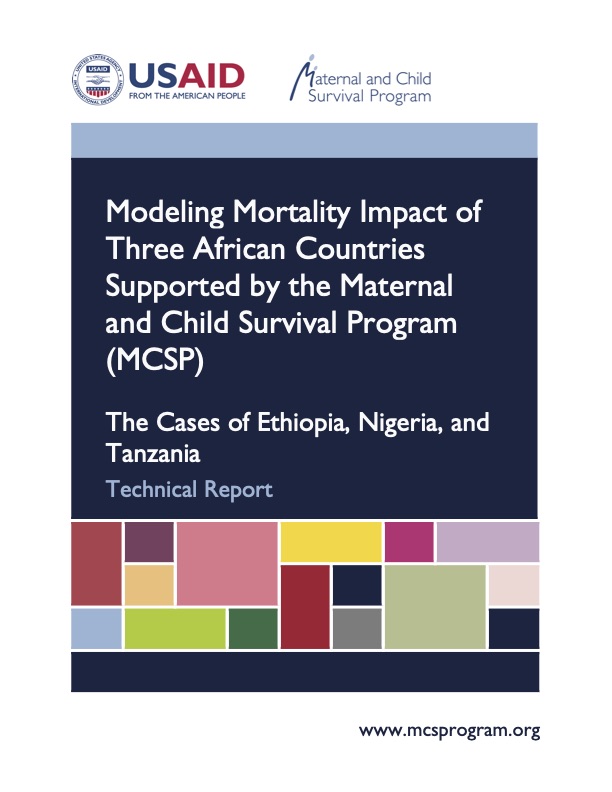
This report summarizes an impact modeling exercise that MCSP conducted to assess country progress as well as its contributions to changes in maternal, newborn, and child mortality trends. MCSP used the Lives Saved Tool (LiST) to estimate the mortality impact of the documented changes in coverage of MCSP-supported HIIs. […]
Read More…
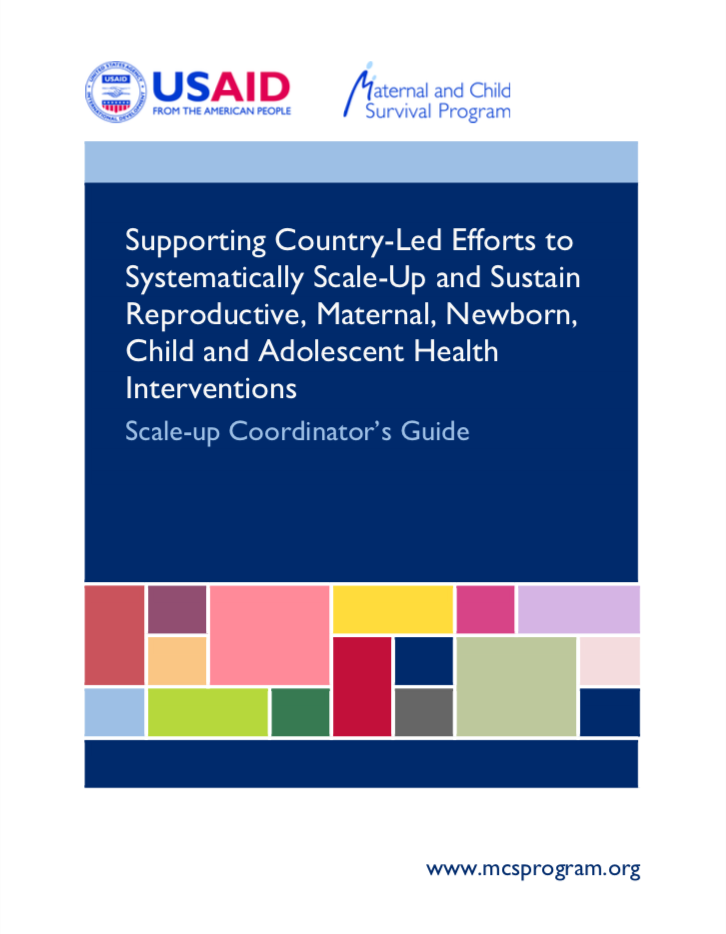
The Coordinators Guide and Toolkit are intended for those supporting a Ministry of Health-led systematic process of scale-up of one or more high-impact reproductive, maternal, newborn, child and adolescent health interventions, geared towards a scale-up coordinator or scale-up manager role. This guide is intended for use by those who support a country’s systematic process of […]
Read More…










